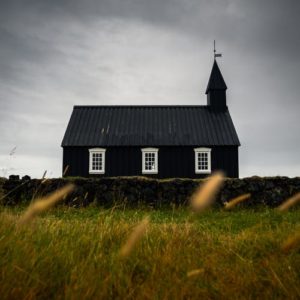The Dones, Church in the Third Third of Life
By now everyone is familiar with the Nones, those who indicate “No Affiliation” with a religious group or tradition on the census.
 But there’s another category that may be less easily identified but equally significant, “the Dones.” The Dones are people who have been active in church or churches, perhaps for their entire lives, but who now indicate they are “done.” They don’t want to work on another stewardship campaign, attend another Board or Congregational meeting, or make calls (do people do that any more?) asking people to serve in some capacity in the church, or set up for another coffee hour. They are done with all that. And some, then, are deciding they are done with church.
But there’s another category that may be less easily identified but equally significant, “the Dones.” The Dones are people who have been active in church or churches, perhaps for their entire lives, but who now indicate they are “done.” They don’t want to work on another stewardship campaign, attend another Board or Congregational meeting, or make calls (do people do that any more?) asking people to serve in some capacity in the church, or set up for another coffee hour. They are done with all that. And some, then, are deciding they are done with church.
Dones may be of any age, but the phenomenon seems to be most prevalent among those who are older, who are in life’s third third. True, many of those one sees in a typical mainline congregation are in that age group, but the number of those who drop out is growing — at least based on my anecdotal information gathering and conversations with peers.
Why is this happening? Perhaps because elders are carrying too much of the institutional burden. Because of changed and generally lower church participation rates among X’ers and Millennials, the older generations — who are themselves living longer — end up carrying the institutional load longer, beyond the time they have the energy or the knack for it.
But maybe there’s a deeper dimension to this? In his book Falling Upward: A Spirituality for the Two Halves of Life, Richard Rohr observes, “Our institutions and our expectations, including our churches, are almost entirely configured to encourage, support, reward and validate the tasks of the first half of life.”
At the risk of oversimplification, those tasks of life’s first half often have to do with achievement, success in worldly and quantitative terms, establishing yourself and your place in the sun. Nothing wrong with any of that. It has its time and place. In churches these things get expressed in building programs and ambitious projects, in serving in leadership roles and being recognized for doing so, and perhaps in being “somebody” in your congregation. As I say, that all has its time and place.
But the last third of life, if you’re doing what people like Rohr suggest is spiritually and relationally appropriate, is different. He talks a lot about the journeys, both inward and outward, though the former is the most important. The inward journey is one of claiming and honoring parts of oneself that may have been overlooked, even repressed, in the earlier time of life. At best, there is a journey toward some greater authenticity and wholeness. There may be outward journeys as well, to places and experiences that feel “off the beaten track,” or as if you are “coloring outside the lines” of your own and other’s expectations.
This is simplified of course, but to the extent that there is truth in it, people in the third third of life are looking for different things from church than they once did. And if Rohr is right, it may be hard to find them there.
He writes, “Even the church’s sacraments are overwhelmingly dedicated to keeping us loyally inside the flock and tied to the clergy, loyal soldiers of the church. There is little talk of journeys outward or onward, the kind of journeys Jesus called people to go on.” That may reflect Rohr’s Catholic experience, and be less true in some other settings, but the overall point remains.
As I talk with folks in the third third, many seem to be saying that what they most want from church at this time of life is meaningful worship and a decent sermon, a sermon with some depth and some God in it. One man told me recently that the retirement facility where he and his wife had moved a couple years ago offered lots of community as well as many great classes and activities. He didn’t need the church for that. What he did need it for was God, to be in God’s presence, to hear “a word from the Lord.”
So maybe there’s another perspective on this, on the growing phenomenon of the dones, one that is a little more straightforward than Rohr’s talk of life stages and “spirituality for the second half of life.”
Some are “done,” because worship isn’t doing it. It isn’t touching minds, hearts and souls in a deep way. And if that’s the case, you may find yourself asking, as one person said to me, “Why bother?”
![Anthony B. Robinson [logo]](https://www.anthonybrobinson.com/wp-content/themes/anthonybrobinson/images/logo.png)
![Anthony B. Robinson [logo]](https://www.anthonybrobinson.com/wp-content/themes/anthonybrobinson/images/logo-print.png)